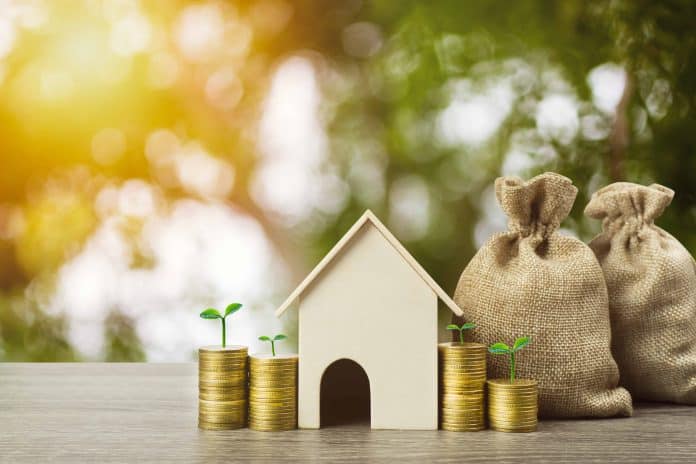
When people think of the “American dream” they usually picture homeownership somewhere within that dream. However, why is that? Well, in fact, there are a lot of benefits that come along with owning a home. In this article, we are going to dive into these financial and personal benefits that you could be able to see if you are a homeowner.
5 Financial and Personal Perks of Homeownership
Oftentimes, when people look at the benefits of something, they only focus on external things like finances. However, owning a home not only has external perks, but internal perks as well. Some popular benefits that come along with owning a home include:
- Equity Increases/Free Cash Source
- Stable Housing Costs
- Investment Opportunities
- Credit Score Improvements
- Freedom to Personalize Your Own Space
Equity Increases/Free Cash Source
Owning a house allows you to build equity over time. But what does that mean? Equity in a home is the difference between its present market worth and what’s left to be paid on the mortgage. As you pay off your mortgage or if the property’s market value increases, that means more equity for you. This increasing ownership value can be cashed out when selling the house, providing financial gains renters cannot access.
Exploring Different Ways To Tap Into Home Equity
You can tap into your home’s equity in a few ways. The most common are through a home equity loan or a home equity line of credit (HELOC). Both options allow you to borrow against the value of your property. It’s important to make sure you have the basic understanding of both a home equity loan and HELOC:
- Home Equity Loan: This works similarly to a second mortgage where you receive a lump sum amount at once, which needs repayment over a fixed term with interest.
- HELOC: It’s more like a credit card offering flexibility to borrow up to a certain limit.
Risks And Considerations When Borrowing Against Your Own Property
Borrowing against your own property isn’t without risks though. If market values decrease or if there’s an inability to meet payment obligations, you could potentially lose ownership via the foreclosure process. Therefore, it’s crucially important that any decision involving borrowing against one’s property should be made after careful consideration and preferably under advice from financial professionals.
Stable Housing Costs
Unlike renting, where prices can fluctuate based on market conditions and landlord choice, owning a home provides a more predictable financial landscape. Not every mortgage can provide stability. However, certain ones, like a fixed-rate mortgage, can!
The Concept of Fixed-Rate Loans
With fixed-rate loans, your payments stay the same regardless of any interest rate fluctuations; so you can plan and budget without fear of an unexpected jump in housing costs. This predictability allows you to budget effectively without worrying about sudden increases in your housing expenses.
In addition, having a fixed mortgage payment helps build equity faster than with adjustable rate mortgages (ARM). If you have an ARM, they often start with lower payments but can rise significantly later, potentially disrupting budget plans. For those seeking long-term stability and control over their finances, homeownership can definitely hold an edge.
Investment Opportunities
Getting a home is more than simply seeking out a spot to live; it can also be seen as an asset that increases in value, delivering long-term fiscal advantages. It’s also often seen as an appreciating investment, providing long-term financial benefits. Despite fluctuations in market trends, historical data shows that on average, homes appreciate in value at about 4% per year in America.
Understanding How Home Appreciation Works
The concept of home appreciation is simple – it refers to the increase in your property’s value over time. This can be due to various factors such as improvements made on the property, inflation, or changes in supply and demand within the local real estate market.
In essence, homeownership offers an opportunity not only for stable living but also as a potential wealth-building tool through capital gains when selling your house later down the line. However, prospective buyers must understand these dynamics before making their decision to purchase because while there are opportunities for profit, there are also risks involved like any other investment.
Credit Score Improvements
Managing a mortgage responsibly can have positive effects on your credit score, including diversifying the types of credit you hold, extending your credit history, and reducing your loan balance.
The Role of Mortgages in Credit Scores
A mortgage is considered an installment loan, which diversifies the types of credit you hold. This diversity, or “credit mix,” accounts for 10% of FICO scores – one of the most widely used scoring models in lending decisions. Additionally, making timely payments on a large debt like a mortgage demonstrates financial responsibility that lenders appreciate.
Freedom to Personalize Your Space
Homeownership comes with a sense of autonomy that renters often miss out on. As homeowners, you can customize your home to fit your individual tastes and lifestyle requirements. This freedom can lead to a more personalized living environment that truly feels like ‘home’.
While you enjoy significant control over your property, it’s essential to understand local laws before embarking on any renovation projects. Certain modifications may require permits or must adhere to specific building codes. For instance, altering load-bearing walls or adding new plumbing could require official permission. Be sure to research home improvement regulations in your area.
Conclusion
Owning a home can come with loads of different perks. Five worth mentioning include:
- Stable Housing Costs
- Investment Opportunities
- Equity Increases/Free Cash Source
- Credit Score Improvements
- Freedom to Personalize Your Own Space
While there are some nice perks, you also want to be thinking about the drawbacks. Overall, owning a home is a great investment that provides long-term financial stability and personal satisfaction. You just want to make sure that you remain responsible with how you deal with your property! If you have any questions, make sure to talk to a relevant professional. They can help point you in the right direction for homeowner related questions.


















